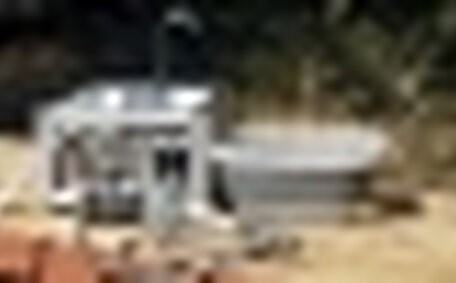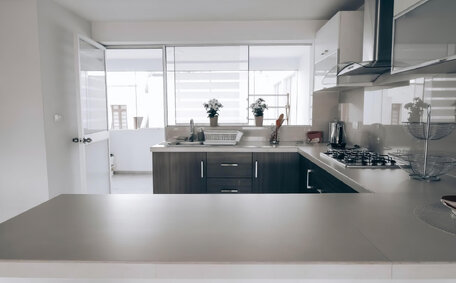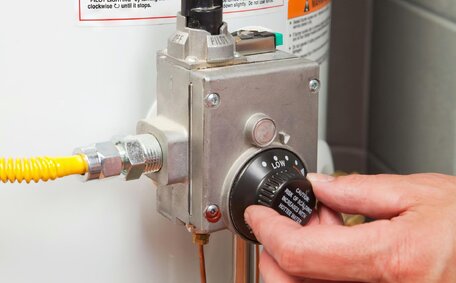Understanding why your gas bill is higher than expected
Your gas bill could be unexpectedly high due to factors such as:
- Seasonal changes - Gas consumption typically climbs in the chilly winter months for heating.
- Actual meter readings that are higher than prior estimates can reflect increased usage on your current bill.
- More household usage - factors like taking longer showers can cause you to use more energy than anticipated.
- Gas price increases - your utility company may raise rates, increasing costs.
- Insufficient insulation in your house - heat loss means your heating system works harder.
- Old or inefficient appliances can strain your natural gas resources - upgrading to newer ENERGY STAR models can help.
To identify factors contributing to high gas costs, compare previous bills and meter readings regularly, and consider weatherproofing your home, optimising solar panels, and evaluating your appliances. If you’re unsure, our experts are here to help. Contact us for personalised advice on boosting your home’s energy efficiency and reducing your gas bills.
Checking for gas leaks around your home
Vigilance is crucial in detecting potential gas leaks in your home to prevent safety hazards and control energy expenses.
How do I promptly spot gas leaks to ensure my safety and manage my gas usage efficiently? warning signs of unexpected high gas usage include a rotten egg smell, hissing noises near gas appliances, browning vegetation outside, or soot buildup. Do not turn light switches on or off, smoke, use phones, or do anything that could cause a spark.
Check your premises regularly to find out more about the causes of high electricity bills and gas bills, such as gas leaks, to ensure your safety and manage costs effectively. HVAC technicians utilise leak detection solutions or smart meters to accurately locate small gas leaks in your systems. We recommend yearly inspections and advise you ring us up to tune gas appliances like water heaters on a regular basis.
Promptly fixing small leaks can prevent escalating energy bills and eliminate the hazards of carbon monoxide poisoning.
Discover how our licensed technicians’ expansive knowledge in natural gas and appliance assessments can serve your needs. If you’re facing any plumbing or gas issues, don’t hesitate to call us right away. We’re happy to come assess your home and ensure your system is leak-free.
Evaluating your gas appliances for efficiency
Assessing the efficiency of your gas appliances can provide significant insight into high energy bills. Ensure you check for old or malfunctioning equipment like furnaces, water heaters, stoves, and dryers, which may be increasing your expenses unknowingly.
Upgrading to ENERGY STAR-certified appliances can slash energy consumption, offering savings on your utility bills. Newer appliances feature enhanced insulation, precise burner control, and efficient heat exchangers to boost efficiency. Strategic upgrades can offer considerable energy bill relief, optimising what can be a more efficient use of energy and saving money on gas bills by 30% or more.
Annual inspections of your electrical and gas appliances by a technician are recommended to prevent potential damage to your systems.
Maintenance such as tune-ups, filter replacements, pipe insulation, and repairs further improves efficiency.
Our skilled technicians can offer a tailored assessment and efficiency recommendations for your gas appliances, coordinating with regulatory bodies as necessary. Contact us today to schedule a comprehensive inspection.
Adjusting thermostats to reduce gas usage
A simple turn of your thermostat dial is a proactive step in curbing gas usage and shaping a more manageable electricity bill. Lowering your thermostat just 1-3°C can cut heating costs by up to 10%. Setting your thermostat to 20°C during waking hours and reducing it to 18°C as you sleep can save on costs.
Investing in a smart or programmable thermostat can afford you enhanced temperature control and energy savings. These allow you to find out how to customise the heating schedule room by room. Innovative controls, such as geo-fencing, can automate temperature adjustments synced to your comings and goings, maintaining comfort while conserving energy just like this time last year.
Regularly monitor your thermostat settings, gradually adjusting them down to find the least energy-intensive yet comfortable temperature. Finding your optimal heating settings takes trial and error, but offers great gas savings over time without sacrificing comfort.
Adding insulation to prevent heat loss
Adequate insulation plays a crucial role in containing heat and lessening energy consumption, which can help manage your bills. Areas that commonly lack sufficient insulation include attics, exterior walls, basements, and crawl spaces. Effective insulation minimises heat loss, easing the workload on your gas heating system.
Insulation options suitable for your home include:
- Batt insulation (fibreglass) - effective for unfinished attics, walls, etc.
- Blown-in insulation (cellulose) - can reach spaces batt insulation cannot.
- Rigid foam boards - useful for finishing basement walls.
- Spray foam insulation – seals air leaks exceptionally well.
Contact your supplier for insulation upgrades; whether it’s augmenting existing materials, insulating uncovered areas, or replacing outdated insulation. Consult an insulation specialist to evaluate your home.
Taking charge of your own home’s insulation by liaising with your distributor about walls, attics, and HVAC ducts can lead to reduced gas heating bills by 25-30% annually. Combine with air sealing for optimal efficiency and comfort.
Comparing energy rates and plans
Comparing energy plans with your provider is essential in bill management, encompassing a grasp of your retailer’s package offerings. With the ability to switch providers in most areas, consulting with your retailer for the most competitive energy plans can lead to significant savings.
In comparing energy plans, evaluate more than just the advertised rates to grasp the full scope of potential costs.
Consult the Australian Energy Regulator’s price comparator to scrutinise the rate discrepancies between providers. Understanding your historical gas usage can inform your decision in selecting the best plan for your needs. Comparing all components allows informed decision making about the ideal gas plan for your home and budget.
Use calculators to get an estimated comparison of yearly expenses with various providers.
Switch providers if you believe that your smart thermostats could enhance gas electricity efficiency. We’re here to support you in comparing plans and rates, aiming to secure the best gas deal and lower your energy costs.
Seeking a professional home energy audit
A professional energy audit can reveal areas of energy waste and inefficiency in your dwelling. An assessor will conduct a thorough inspection, wielding equipment like thermal imaging cameras, to pinpoint issues causing you to use more gas than usual, affecting your bills.
Auditors typically analyse several factors during a home energy audit, including your energy bill:
- Insulation levels and air leaks
- Efficient use of heating and air conditioning equipment
- Thermostat settings
- Doors and windows
- Ductwork and pipes
You’ll obtain a comprehensive report detailing inefficiencies and strategies to diminish costly gas bills. Recommendations may cover insulation upgrades, HVAC maintenance, appliance replacements, thermostat adjustments, and more. Investing in these can save you on gas bills, with savings of 10-30% annually.
For an all-encompassing energy audit, consult your maintenance guide or get in touch with the licensed specialists at Riverwood Plumbing. Get in touch with your friendly team by calling 1300 349 338 or emailing [email protected] to schedule an audit. Rely on our decades of experience to get in touch with your specific needs, uncover hidden efficiency issues leading to high gas bills and provide solutions to reduce your costs.






